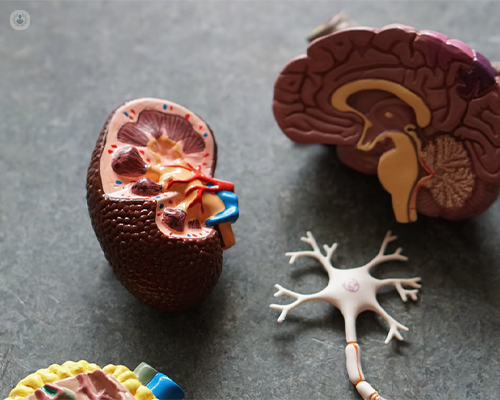Vagus nerve dysfunction: what is it and what are the main symptoms?
Escrito por:Vagus nerve dysfunction occurs when the vagus nerve has been damaged due to a past infection or inflammation or when we experience a prolonged period of physical or mental stress. In our latest article, renowned gastroenterologist, Professor Owen Epstein, talks us through all things vagus nerve dysfunction, offering us a handful of useful home remedies for the condition.

What are the symptoms of vagus nerve dysfunction?
The vagus nerve conveys information from the major organs of the body to the brain, where a “spam filter” determines the direction of the information stream. If all is well, our consciousness is shielded from the incoming information feed while organ disease or disorder allows information upload to consciousness where we appreciate that something is wrong.
If this information provides too little or too much information (false news), we may feel unwell with digestive symptoms, brain fog, fatigue, muscle ache and headache amongst other non-specific symptoms.
What causes vagus nerve dysfunction?
There are two main causes of vagus nerve dysfunction: previous infection or inflammation and physical or psychological stress.
Is there a test for vagus nerve dysfunction?
Yes, a lightweight wearable device called Bodyguard 2 is worn for 72 hours, allowing measurement of heart rate variability which is a marker of vagus health.
What are some home remedies to calm the vagus nerve?
When functioning properly, the role of the vagus is to promote wellbeing. There are many useful techniques that one can engage in to calm the vagus nerve at home, such as:
- special breathing exercises
- meditation (Ex. mindfulness, mantra meditation, movement meditation)
- yoga
- massage
- music

How effective are vagus nerve stimulators?
If there is evidence of vagus nerve malfunction, a non-invasive nerve stimulator may improve or restore inner balance and wellbeing.
Professor Owen Epstein is a highly experienced minimally invasive gastroenterologist who specialises in the stomach and intestine, and the vagus nerve’s relationship with abnormal gut feelings. Visit his Top Doctors profile here to book an appointment with him.


